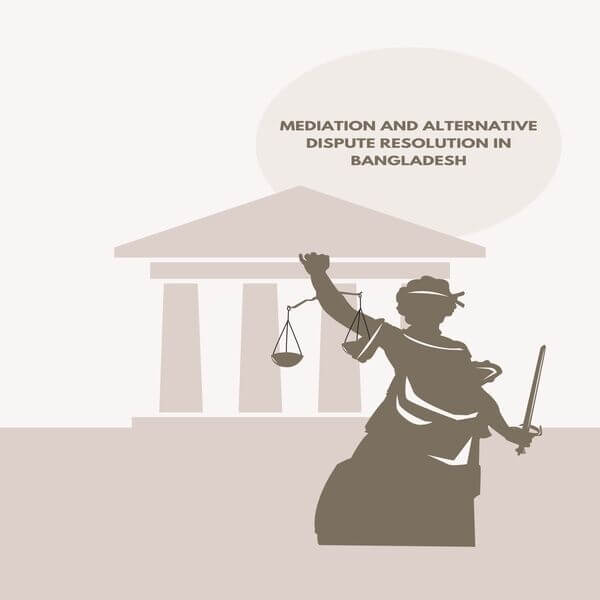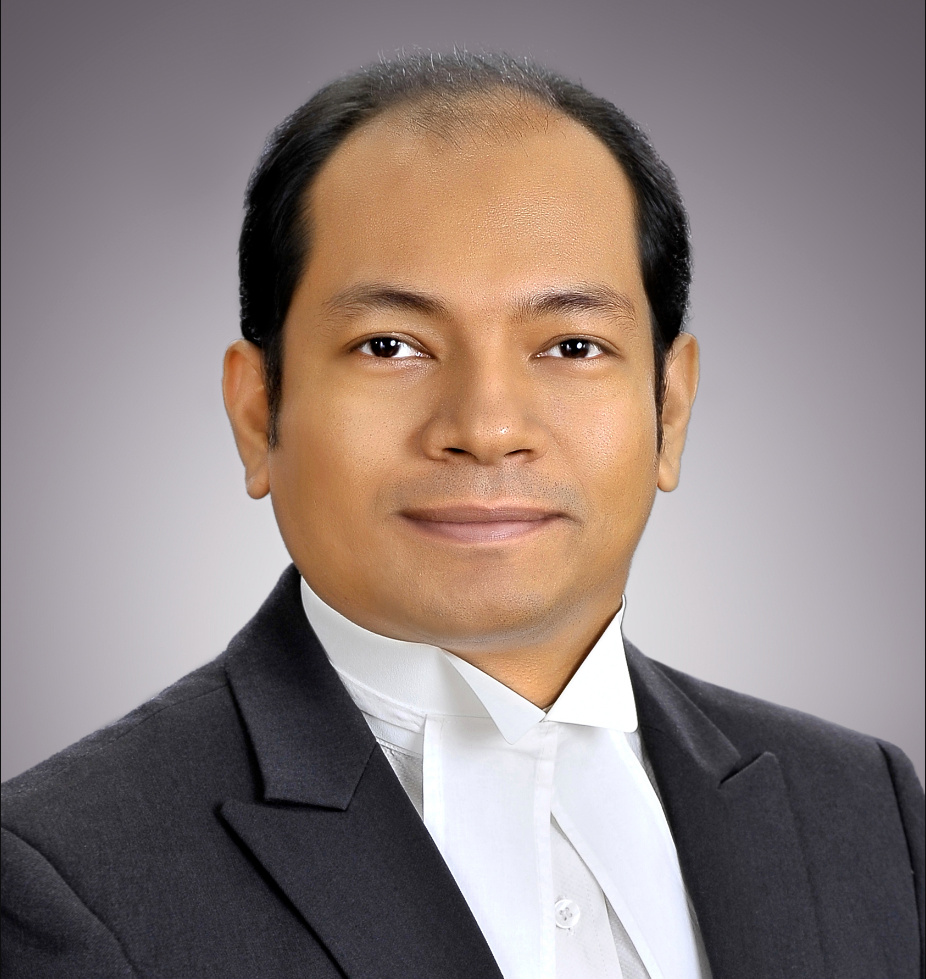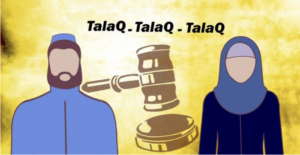Mediation and Alternative Dispute Resolution in Bangladesh
Bangladesh’s judicial system faces unprecedented challenges, with over 4.2 million pending cases creating massive delays for justice seekers. In this context, Alternative Dispute Resolution (ADR) emerges as a beacon of hope, offering faster, cost-effective, and more collaborative solutions to legal disputes. This comprehensive guide explores mediation and ADR mechanisms in Bangladesh, their legal framework, benefits, and practical implementation.
What is Alternative Dispute Resolution (ADR)?
Alternative Dispute Resolution refers to informal methods of resolving disputes without resorting to traditional court litigation. Unlike the adversarial nature of court proceedings, ADR encourages cooperation and consensus between disputing parties. The primary ADR methods practiced in Bangladesh include:
Mediation: A flexible, confidential process where a neutral mediator facilitates compromise between parties Arbitration: A binding dispute resolution process where an arbitrator renders decisions Conciliation: A process similar to mediation with more active third-party involvement Negotiation: Direct discussion between parties to reach mutual agreement
Legal Framework for Mediation and Alternative Dispute Resolution in Bangladesh
Bangladesh has developed a robust legal infrastructure to support ADR mechanisms over the past two decades. If you’re dealing with legal disputes, understanding this framework is crucial. The key legislation includes:
- Arbitration Act, 2001
The Arbitration Act 2001 serves as the cornerstone of Bangladesh’s ADR framework. Based on the UNCITRAL Model Law on International Commercial Arbitration, this Act:
Consolidates laws governing domestic and international commercial arbitration Provides legal recognition to arbitration agreements and awards Permits mediation during arbitration proceedings Applies whenever the place of arbitration is in Bangladesh
The Act came into force on April 10, 2001, replacing the outdated Arbitration Act of 1940. It offers parties significant freedom in composing arbitral tribunals and determining procedures.
- Code of Civil Procedure (CPC), 1908
Following amendments in 2003 and 2012, the CPC now includes mandatory mediation provisions:
Section 89A: Defines mediation as a “flexible, informal, non-binding, confidential, non-adversarial and consensual dispute resolution process” Sections 89A-89E: Create scope for mediation and arbitration in civil disputes Section 89C: Provides for mediation in Appellate Courts Makes mediation mandatory in all civil suits and appeals since 2012
- Artha Rin Adalat Ain (Money Loan Court Act), 2003
Amended in 2010 to incorporate mediation provisions:
Section 22: Mandates referral to mediation after filing written statements Section 23: Provides second mediation opportunity after trial conclusion Specifically designed for money loan disputes
- Family Courts Act, 1985
The Family Courts Ordinance 1985 introduced ADR mechanisms for family disputes, which have shown impressive success rates. Family courts in Bangladesh have achieved high disposal rates through mediation, demonstrating the effectiveness of ADR in sensitive personal matters.
- Village Court Act, 2006 & Village Court Rules, 2016
These laws recognize informal mediation at the community level, giving legal backing to traditional dispute resolution mechanisms in rural Bangladesh.
- Legal Aid (Legal Advice and Alternative Dispute Resolution) Regulation, 2015
This regulation provides framework for legal aid organizations to offer ADR services to disadvantaged populations.
Types of ADR in Bangladesh
Court-Annexed vs. Standalone ADR
Court-Annexed ADR: Integrated into formal court proceedings. After filing a case, judges may refer parties to mediation or other ADR methods. This is mandatory in civil suits under current law.
Standalone ADR: Parties independently engage in mediation or arbitration outside the court system. This includes commercial arbitration and community-based dispute resolution.
Binding vs. Non-Binding ADR
Binding ADR: The decision is final and enforceable (e.g., arbitration awards).
Non-Binding ADR: Parties can reject the outcome and proceed to litigation (e.g., mediation).
Formal vs. Informal ADR
Formal ADR: Conducted under established institutional rules with trained professionals.
Informal ADR: Traditional community mediation (Shalish) and local dispute resolution.
Benefits of ADR in Bangladesh
- Time Efficiency
Court cases in Bangladesh can drag on for years or even decades. ADR provides resolution within weeks or months, offering quicker relief to disputants. With the current backlog of 4.2 million cases and nearly 789,181 cases pending for over five years, ADR offers a practical solution for legal matters.
- Cost-Effectiveness
ADR processes are far more economical than traditional litigation. Parties save on:
Legal fees Court costs Time away from work Travel expenses
- Confidentiality
Unlike public court proceedings, ADR maintains confidentiality. Only arbitrators, parties, and their lawyers participate, protecting sensitive business or personal information.
- Preservation of Relationships
ADR’s collaborative approach helps maintain relationships between parties, crucial for:
Business partnerships Family disputes Employer-employee relations Community harmony
- Flexibility and Control
Parties have greater control over:
Selection of mediators/arbitrators Procedural rules Timing and scheduling Outcome terms
- Win-Win Solutions
Unlike court verdicts that create winners and losers, ADR helps parties find mutually satisfactory solutions, increasing overall satisfaction.
The Mediation Process in Bangladesh
Mediation in Bangladesh follows a structured yet flexible approach:
Step 1: Referral or Agreement
Cases may be referred to mediation by:
Court order (in civil suits) Mutual agreement between parties Pre-existing mediation clauses in contracts
Step 2: Mediator Selection
Parties select a neutral mediator by mutual agreement. In court-annexed mediation, judges may appoint trained mediators from approved panels.
Step 3: Preliminary Meeting
The mediator:
Explains the mediation process Establishes ground rules Ensures voluntary participation Confirms confidentiality
Step 4: Opening Statements
Each party presents their perspective without interruption, helping the mediator understand the dispute’s nature and underlying interests.
Step 5: Joint Discussion
The mediator facilitates dialogue between parties, identifying:
Common ground Core issues Potential solutions Areas of flexibility
Step 6: Private Caucuses
The mediator may hold separate sessions with each party to:
Explore interests privately Reality-test positions Discuss concessions Build trust
Step 7: Negotiation and Agreement
Parties work toward mutually acceptable terms with the mediator’s guidance. If successful, the agreement is documented.
Step 8: Settlement Documentation
Successful mediation results in a written agreement signed by all parties. In court-annexed mediation, this becomes a court decree, making it legally enforceable.
Arbitration Process in Bangladesh
Arbitration offers a binding alternative to litigation:
- Arbitration Agreement
Parties must have a written arbitration agreement, either:
As a clause in their contract As a separate agreement after dispute arises
- Tribunal Composition
Parties determine:
Number of arbitrators (typically one or three) Appointment procedure Qualifications required
If parties cannot agree, the District Judge appoints arbitrators.
- Arbitration Proceedings
The process includes:
Submission of claims and defenses Document exchange Hearings and evidence presentation Expert testimony if needed
- Arbitral Award
The arbitrator(s) render a binding decision called an arbitral award, which is enforceable through courts under the Arbitration Act, 2001.
Institutional Support for ADR
Bangladesh International Arbitration Centre (BIAC)
BIAC is the premier institution promoting ADR in Bangladesh, offering:
BIAC Arbitration Rules 2019 BIAC Mediation Rules 2019 Panel of qualified arbitrators and mediators Modern facilities and administrative support Training and capacity building programs
However, unlike similar institutions in Singapore or Australia, BIAC lacks statutory authority as a default appointing body, limiting its effectiveness.
Community Organizations
Organizations like the Madaripur Legal Aid Association (MLAA) have developed successful community-based ADR models, particularly benefiting rural and disadvantaged populations.
Challenges Facing ADR in Bangladesh
Despite legislative progress, ADR implementation faces several obstacles that legal professionals must address:
- Low Awareness
Many litigants and even legal practitioners have limited knowledge of ADR mechanisms and processes.
- Cultural Resistance
When parties enter formal litigation, their adversarial mindset often makes consensus-building difficult. The social context in Bangladesh means dragging someone to court creates confrontational attitudes.
- Urban-Rural Divide
ADR facilities, trained mediators, and arbitration centers are concentrated in urban areas, leaving rural populations underserved.
- Absence of Comprehensive Rules
Despite Section 57 of the Arbitration Act 2001 permitting rule-making, no official rules have been framed after over 20 years, creating ambiguity and inconsistency.
- Mediator Quality and Training
Insufficient training programs and quality control mechanisms for mediators affect process effectiveness.
- Judicial Discretion Limitations
Current law provides limited judicial discretion to determine whether disputes are suitable for ADR before proceedings begin.
- Enforcement Challenges
While arbitral awards are legally enforceable, practical challenges sometimes arise in execution.
Best Practices for Effective ADR
To maximize ADR benefits:
For Parties:
Early Engagement: Consider ADR before disputes escalate Good Faith Participation: Approach mediation with genuine willingness to compromise Prepare Thoroughly: Understand your interests, not just positions Choose Qualified Neutrals: Select experienced mediators/arbitrators Clear Documentation: Ensure agreements are comprehensive and clear
For Legal Professionals:
Educate Clients: Explain ADR benefits honestly Draft Effective Clauses: Include well-crafted ADR clauses in contracts Facilitate Settlement: Guide clients toward collaboration, not confrontation Continuous Learning: Stay updated on ADR developments
For Policymakers:
Establish Clear Rules: Frame comprehensive regulations under existing Acts Strengthen Institutions: Provide statutory recognition to ADR centers Expand Access: Create ADR tribunals in every lower court Capacity Building: Invest in training programs for mediators and arbitrators Public Awareness: Conduct campaigns promoting ADR benefits
International Comparisons
Countries with successful ADR systems offer valuable lessons:
Singapore
Singapore’s comprehensive ADR ecosystem includes the Singapore Mediation Centre (SMC) and adherence to the Singapore Convention on Mediation for international enforcement of agreements.
United Kingdom
The UK promotes ADR through institutions like the London Court of International Arbitration (LCIA) and Centre for Effective Dispute Resolution (CEDR). The Civil Procedure Rules encourage pre-litigation mediation.
Dubai
The Dubai International Financial Centre (DIFC) Courts effectively use arbitration and mediation for complex commercial disputes, while Ismaili Conciliation and Arbitration Boards handle family disputes through culturally sensitive approaches.
United States
With organizations like the American Arbitration Association (AAA), the US has established comprehensive ADR frameworks integrated into the legal system.
Bangladesh can adapt these models while respecting local cultural contexts and legal traditions.
Future of ADR in Bangladesh
For ADR to reach its full potential in Bangladesh, several reforms are necessary:
Legislative Amendments: Clarify Section 89A of CPC with standardized guidelines for mediator selection, case suitability, and accountability mechanisms Institutional Development: Establish accredited ADR centers with statutory recognition, trained staff, and transparent fee structures Mandatory Pre-Litigation ADR: Consider making ADR attempts mandatory before litigation in suitable cases Specialized ADR Training: Develop comprehensive training programs for judges, lawyers, and mediators Technology Integration: Adopt online dispute resolution (ODR) platforms for accessibility Research and Data Collection: Systematic study of ADR outcomes to guide policy improvements Public-Private Partnerships: Encourage collaboration between government, judiciary, legal community, and private institutions
Why Choose Elahi Legal for ADR Services?
At Elahi Legal, we understand that disputes can be stressful, time-consuming, and costly. Our experienced legal team specializes in guiding clients through effective alternative dispute resolution processes.
Our ADR Services Include:
Mediation Representation: Skilled advocacy during mediation proceedings Arbitration Services: Comprehensive support through arbitration processes ADR Clause Drafting: Strategic contract provisions to facilitate future dispute resolution Dispute Assessment: Expert evaluation of whether ADR is suitable for your case Settlement Negotiation: Effective negotiation strategies to achieve favorable outcomes
Our lawyers stay current with Bangladesh’s evolving ADR landscape, ensuring clients receive practical, effective legal solutions aligned with modern dispute resolution practices.
Contact Us
For expert legal assistance with mediation, arbitration, or any alternative dispute resolution matter, contact Elahi Legal:
Website: https://elahilegal.com/ Phone: +8801717 554759 Email: [email protected]
Conclusion
Mediation and Alternative Dispute Resolution represent a transformative approach to justice delivery in Bangladesh. With over 4.2 million cases pending in courts and only one judge for every 94,444 citizens, ADR is not just an alternative—it’s a necessity. The comprehensive legal framework established through the Arbitration Act 2001, amendments to the Code of Civil Procedure, and various sector-specific legislation demonstrates Bangladesh’s commitment to promoting effective dispute resolution.
However, realizing ADR’s full potential requires continued efforts in awareness-building, institutional development, training, and legislative refinement. As legal professionals, policymakers, and citizens embrace collaborative dispute resolution methods, Bangladesh can build a more efficient, accessible, and just legal system for all.
Whether you’re facing a business dispute, family matter, or civil litigation, consider exploring ADR options before embarking on lengthy court proceedings. The benefits of faster resolution, lower costs, confidentiality, and relationship preservation make ADR an attractive path to justice.
For expert guidance on mediation, arbitration, or any aspect of alternative dispute resolution in Bangladesh, contact Elahi Legal today.
Frequently Asked Questions (FAQs)
- What is the difference between mediation and arbitration in Bangladesh?
Mediation is a non-binding, voluntary process where a neutral mediator facilitates negotiations between parties to reach a mutually acceptable agreement. Arbitration is a binding process where an arbitrator makes a decision that parties must follow, similar to a court judgment. Mediation preserves party autonomy, while arbitration results in an imposed decision. For more information about dispute resolution options, consult with legal experts.
- Is mediation mandatory in Bangladesh civil cases?
Yes, since the 2012 amendment to the Code of Civil Procedure, mediation has become mandatory in all civil suits and appeals in Bangladesh. Courts must refer cases to mediation, though parties still participate voluntarily in reaching agreements.
- How long does ADR take compared to court litigation?
ADR typically resolves disputes within weeks to a few months, while court cases in Bangladesh can take years or even decades due to the massive backlog. Some cases have been pending for over 20 years in the court system. This makes ADR an attractive option for commercial disputes.
- Are mediation agreements legally enforceable in Bangladesh?
Yes, when mediation is successful in court-annexed proceedings, the agreement becomes a court decree and is legally enforceable. Standalone mediation agreements are also enforceable as contracts under general contract law principles.
- What types of disputes are suitable for ADR in Bangladesh?
ADR is suitable for most civil and commercial disputes, including contract disputes, property matters, family disputes, money loan cases, labor disputes, and business disagreements. However, certain matters like criminal offenses (except compoundable ones), testamentary matters, and disputes involving fraud may not be appropriate for ADR.
- How much does ADR cost in Bangladesh?
ADR is significantly more cost-effective than litigation. Costs vary depending on the complexity of the dispute, the mediator’s or arbitrator’s fees, and whether it’s court-annexed (often free or low-cost) or private institutional ADR. Generally, ADR saves parties substantial legal fees, court costs, and time-related expenses.
- Can I still go to court if mediation fails?
Yes, mediation is non-binding. If parties cannot reach agreement through mediation, they retain full rights to proceed with litigation. Failed mediation does not prejudice their court case, and nothing said during mediation can be used as evidence in subsequent litigation due to confidentiality rules.
- Who can be a mediator or arbitrator in Bangladesh?
Mediators and arbitrators should be neutral, impartial individuals with relevant expertise. The Arbitration Act allows parties freedom to select arbitrators based on agreed qualifications. Court-annexed mediators are typically trained professionals from approved panels. BIAC maintains panels of qualified mediators and arbitrators.
- Is arbitration recognized internationally if done in Bangladesh?
Yes, Bangladesh’s Arbitration Act 2001 is based on the UNCITRAL Model Law, providing international recognition. Arbitral awards from Bangladesh can be enforced in countries that are signatories to international arbitration conventions, subject to their domestic laws.
- What is the role of lawyers in ADR?
Lawyers play a crucial role in ADR by advising clients on process selection, preparing cases, representing clients during proceedings, drafting settlement agreements, and ensuring legal rights are protected. Skilled lawyers guide clients toward collaborative solutions while safeguarding their interests.





